Hollywood & Spine Archive: Star Beast
An overview of the novelization to ALIEN, originally published in February 2019.
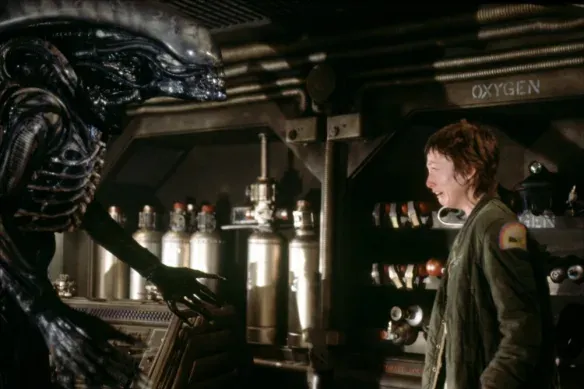
Covering a work by the king of novelizations, Alan Dean Foster, was a no-brainer early in Hollywood & Spine. I think I ended up sending this to him, and he was kind and encouraging. Little did anyone know just how pivotal this book would be in where novelizations would most prominently take a seat in 2020s culture - the Disney-Fox deal had not yet closed when this was written. I say it later in a caption, but there's one deleted scene adapted in this book that exemplifies a concept I love: when something gets cut out of a movie but is included either literally or spiritually in a sequel. The beginning of The Karate Kid Part II is like that, as we discussed a little while ago.
Also, I just found out another one of these movies is coming out this summer? People, or maybe Hollywood executives, cannot get enough of these big ol' freaks with the long heads. (Originally published 2/28/2019)
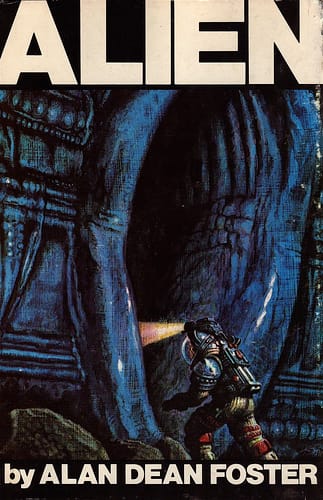
Alien by Alan Dean Foster (screenplay by Dan O'Bannon; story by Dan O'Bannon & Ronald Shusett) (Warner Books, 1979; republished Titan Books, 2014)
The pitch: A commercial space freighter's crew lands on a remote planet to investigate a mysterious signal, and things...do not go well from there, thanks to one of the most iconic sci-fi horror creatures of all time.
The author: Alan Dean Foster is doubly celebrated as a sci-fi writer (his Pip and Flinx and Founder Of The Commonwealth span more than 30 novels since 1972) and an adapter of film and TV as prose (including, at the time, 10 adaptations of the Star Trek animated series, the O'Bannon-penned John Carpenter film Dark Star, and a ghostwritten adaptation of Star Wars). He later adapted Alien's first two sequels into book form.
The lowdown: Ridley Scott's breakthrough film is a master class in post-Star Wars "used universe" sci-fi and Hitchcockian tension - and, against all odds, the film has blossomed into a sprawling franchise, including three direct sequels, two crossovers with 20th Century Fox's Predator series and, in the 2010s, two prequels helmed by Scott himself (2012's Prometheus and 2017's Alien: Covenant).
What's primarily fascinating about Foster's affable adaptation is it predicts precious few of these touchstones, including the craftsmanship of the original film itself. Now, that's to be expected in the novelization world: Foster recounted in 2006 that he was given a three-week turnaround, and noted in 2014 that his source material was an early draft of O'Bannon's script, with no allowance toward production stills or concept art.
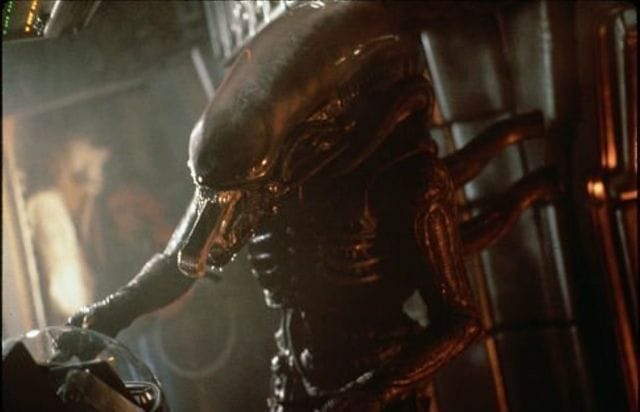
That makes for an interesting division of emotional and intellectual labor to Alien readers. The cramped, grimy interiors of the starship Nostromo (here a floating oil refinery instead of a mining vessel) are pitch perfect - but the description of H.R. Giger's iconic creature is amazingly vague ("something man-shaped...huge and malevolent...light reflecting off eyes far too big for even a huge head"). The characterization of the Nosotromo's crew is spot-on (you can imagine Sigourney Weaver's weary-but-efficient ad-hoc fighter in Ripley's prose form, and hear mechanic Brett's consistent "right" refrain in Harry Dean Stanton's laconic voice) - but the shaggy pacing of the book is nothing like the film's precision cuts. (The facehugger alien appears on page 99 of the 2014 printing of the book, but the newborn alien doesn't burst from poor Kane's chest until about 80 pages later; then, the movie's tense final 20 minutes - involving two more alien victims, a race to set the ship to self-destruct, a tense trip to the escape pod and a final encounter with the stowaway beast - wraps up in the last 10 pages.)
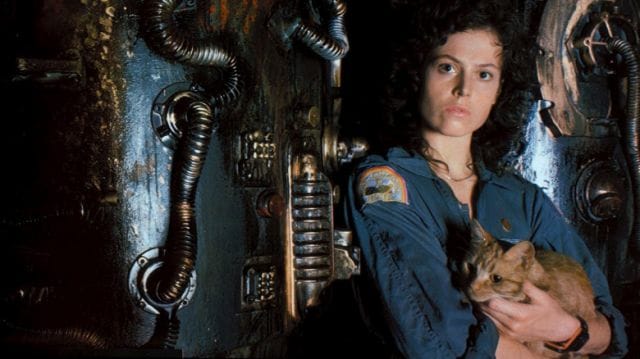
Perhaps most interesting in the translation from film to book is the simultaneous presence and absence of two pieces of Alien lore which figure heavily into Scott's prequels. The derelict spacecraft where the alien is discovered lacks in the book version the famous "space jockey" - the craft's oversized pilot, dead from an incubated xenomorph in its chest and later known to be one of the "Engineers" that created mankind in Prometheus. What is covered heavily, though, is the icy tension that Ash, the ship's science officer, is not who he seems, and later revealed to be an android programmed to capture and transport the creature to "the Company" (no Weyland-Yutani moniker on the page). Foster mines a lot of rich detail from Ash's exposed identity, and it's little surprise that Scott found it intriguing in his script, not only touching on similar mechanical issues in 1982's Blade Runner but making synthetic humans key characters in Prometheus and Alien: Covenant - arguably more so than the series' extraterrestrial horrors.
The cutting room floor: Alien was given director's cut treatment in 2003, so it's no surprise that the novelization reinstates material either truncated or omitted from the finished film. Here, it's down to three scenes. First, there's an extended riff on the Nostromo crew's attempt to capture the alien after it escapes from its host, involving netting and shock prods (knowing full well that lasers would cause the creature to bleed acid and damage the ship's hull).
Next, there's a great, tense sequence after Captain Dallas is defeated by the xenomorph: Parker, the ship's head engineer, finds the alien near the Nostromo's airlock - but an attempt to flush it out into space is thwarted by a sudden alarm, and the surprised beast loses an arm while escaping the door, causing the hull to breach and nearly killing Ripley and Parker as she tries to rescue him. (Spoiler alert: the alarm was no accident, tripped by science officer Ash.)
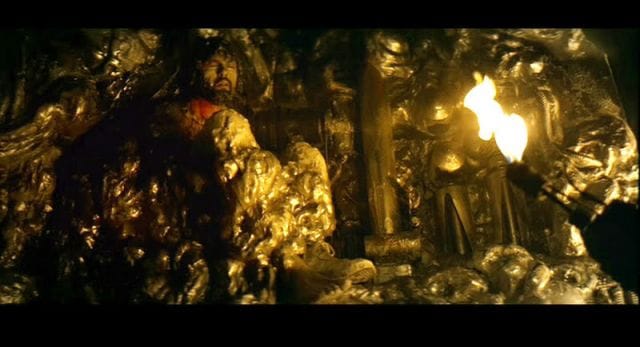
Finally, and most intriguingly, there's the infamous sequence when, while trying to escape the Nostromo, Ripley finds the seemingly-dead Dallas and Brett cocooned, slowly morphing into eggs to kickstart the creature's life cycle anew. Foster is clearly a fan of this sequence, including references to this alternate gestation in his novels to Aliens and Alien 3...and it accidentally does a fascinating job of almost predicting the Queen/hive dichotomy that James Cameron introduced into the series in Aliens.
The verdict: Alien the book is loose in places where the film is icily efficient, but you'll certainly recognize its charms - both as a story and a now 40-year franchise. After all...in print, no one can hear you scream.
